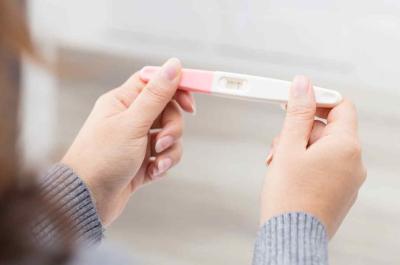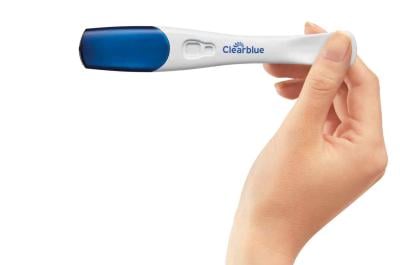
You may have heard about the so-called pregnancy hormone, but what is it? All pregnancy tests detect the presence of the hormone hCG, or human chorionic gonadotrophin to give its scientific name, in either blood or urine. If you’d like to know why your body produces hCG, how its levels go up, what hCG levels can tell your doctor and whether it causes morning sickness, read on.
In this article
- 1. What is human chorionic gonadotropin?
- 2. What is the role of hCG?
- 3. How do your hCG levels change during early pregnancy?
- 4. What should hCG levels be at four weeks of pregnancy?
- 5. How do pregnancy tests use hCG to detect pregnancy?
- 6. Is there a connection between hCG levels and morning sickness?
- 7. How do twins and multiples affect hCG levels?
- 8. Can hCG levels diagnose a miscarriage or an ectopic pregnancy?
1. What is human chorionic gonadotropin?
Human chorionic gonadotropin (hCG) is a hormone that’s made first by the embryo and then by the placenta. This hormone stimulates the production of increased estrogen and progesterone during pregnancy and is the hormone detected by all pregnancy tests, whether at home in your urine or in a blood test at the doctor’s office.
2. What is the role of hCG?
The hCG hormone plays a vital role in early pregnancy as it helps the corpus luteum1, the bit that’s left over when the egg is released from the ovary, and helps maintain the uterus lining, survive. It also stimulates the thyroid gland2 and supports the implantation of the blastocyst (which will later develop into the baby). Since this hormone is produced by the fertilised egg and later the placenta, it’s a useful hormone to detect pregnancy.
3. How do your hCG levels change during early pregnancy?
The levels of hCG rise rapidly in the earliest days of pregnancy and can be detected around eight days after the estimated day of conception in the blood by the most sensitive laboratory methods. Home pregnancy tests can detect it a few days later in urine depending on their sensitivity. HCG levels rise quickly and exponentially, usually doubling every 2days3,4 in the first weeks before reaching a steady level (plateau) around week 10; after which time they slowly decline.
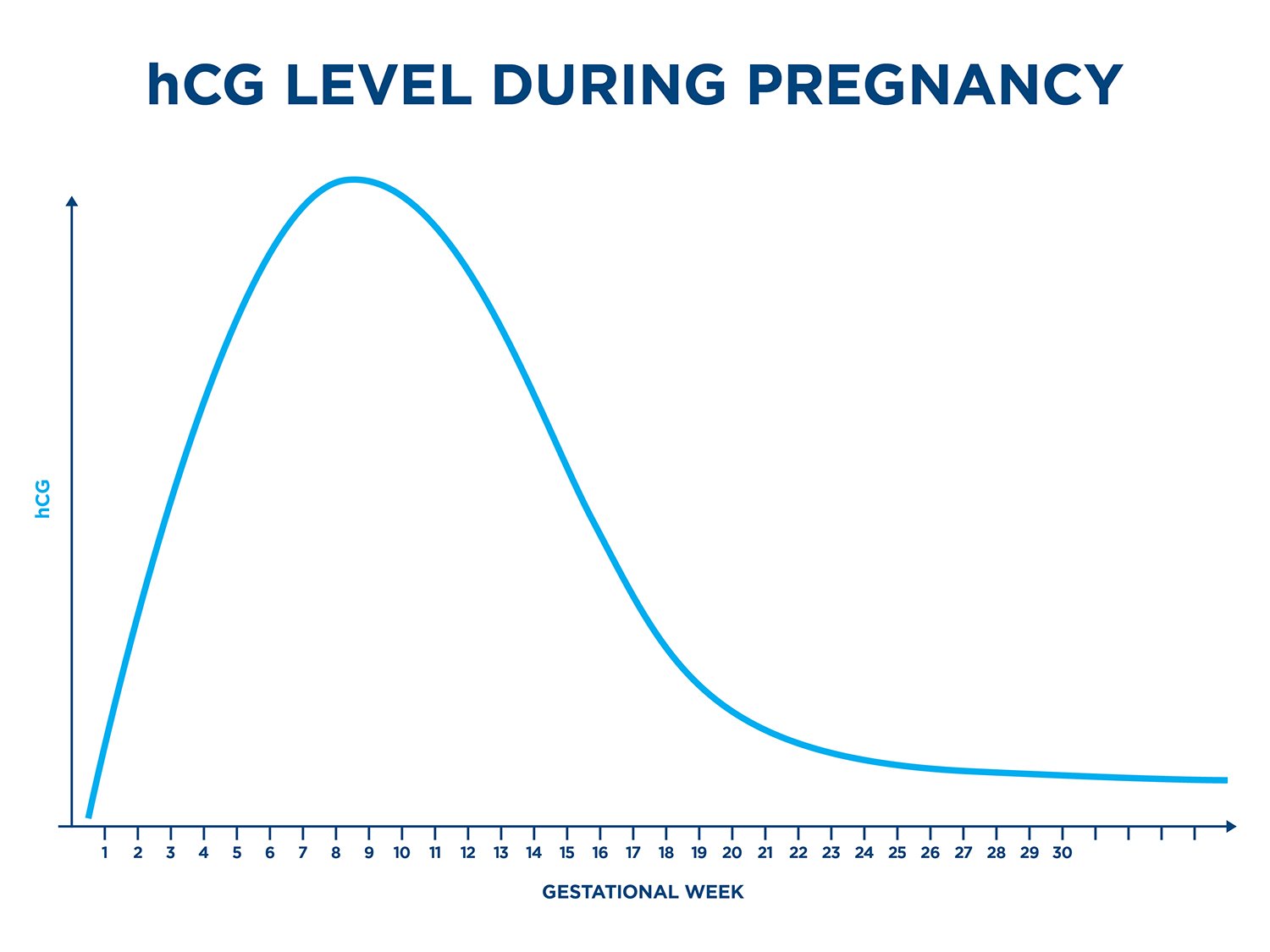
4. What should hCG levels be at four weeks of pregnancy?
On average, the hCG level at four weeks of pregnancy, is around 140 mIU/ml5. However, the only way you can find out your actual hCG level is through a quantitative blood test. Speak to your doctor if you are concerned about your hCG level.
5. How do pregnancy tests use hCG to detect pregnancy?
Home pregnancy tests work by using antibodies to detect hCG in your urine. The embryo starts producing hCG around six to seven days following fertilisation, and increases the rate rapidly, especially once it has implanted in the uterus. Most home pregnancy tests can detect hCG levels at least from the day your period is due, but some tests are more sensitive, so look for a more sensitive one you can use in the days before your missed period if you’d prefer not to wait. A positive result means there is hCG in your urine. Genuine false-positives are incredibly rare, so any positive, even a faint line almost certainly means pregnancy is detected.
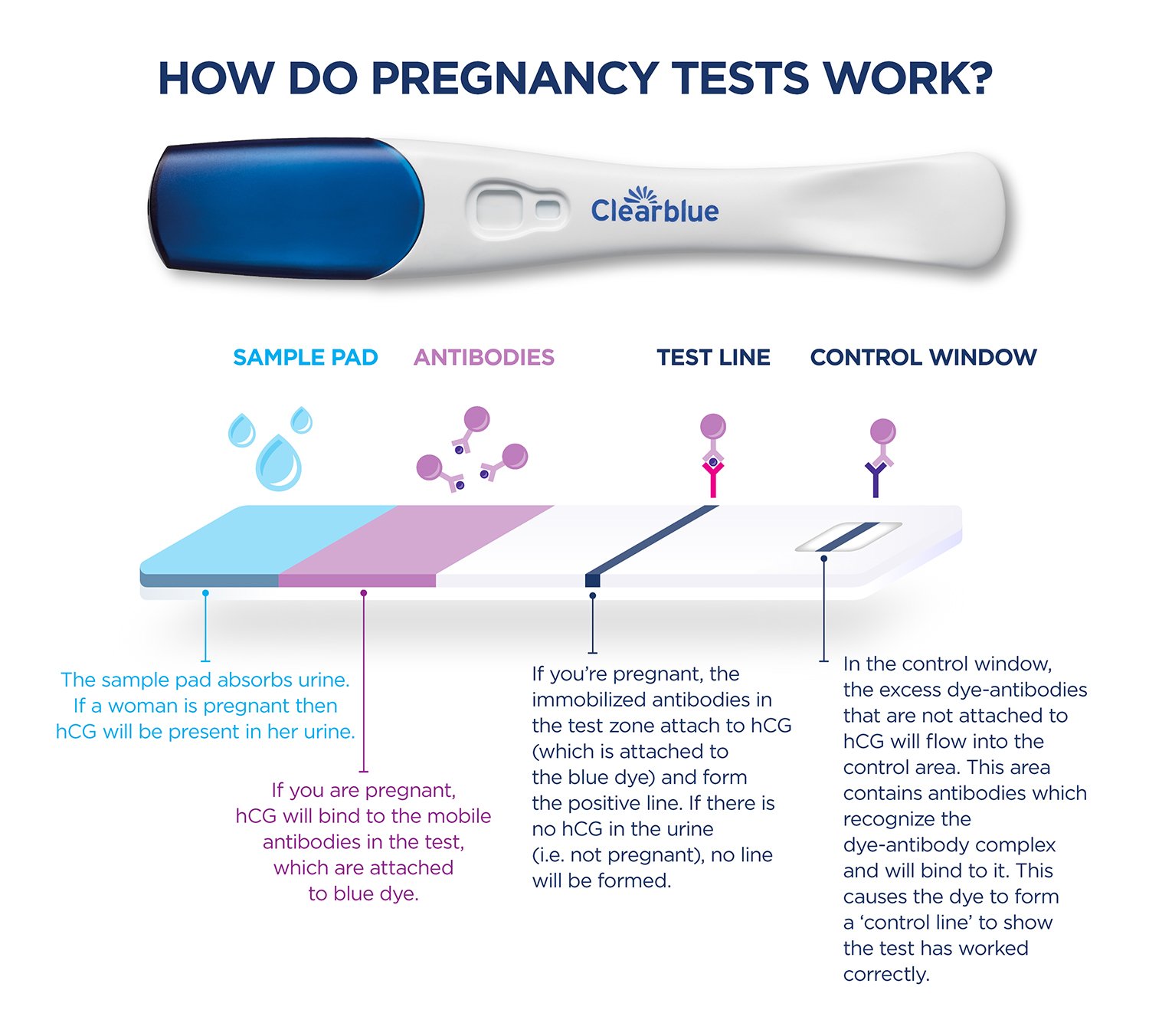
6. Is there a connection between hCG levels and morning sickness?
You may have been told that morning sickness means a healthy baby. It may be scant comfort when you’re feeling so sick all the time, but there might be a grain of truth in it. There are studies showing a relationship between morning sickness, a healthy pregnancy, and rising levels of hCG, but the jury is still out.
7. How do twins and multiples affect hCG levels?
Women pregnant with twins or multiples have high levels of hCG. This increased level of hCG could also be why some women who carry twins have severe morning sickness compared to women who are expecting only one baby. If you have a blood test to check your hCG levels and it’s higher than average, there is a chance that you are pregnant with more than one baby4,6.
8. Can hCG levels diagnose a miscarriage or an ectopic pregnancy?
Your hCG level can inform your doctor whether there is a risk of an ectopic pregnancy or whether a miscarriage has occurred. Declining or low rate of increase in hCG over 48 hours can be a sign of an ectopic pregnancy or miscarriage. In the case of an ectopic pregnancy, the hCG level may just plateau or increase at a very slow rate. If the hCG level continually declines, this points to a miscarriage having taken place or that the pregnancy may no longer continue. See your healthcare provider if you have any concerns7.
HCG is one of the most important hormones in early pregnancy. It’s the reason the test turns positive. It continues to increase over the first trimester as your baby continues to grow and you may feel a little nauseous. Because hCG is usually only produced during pregnancy, if you see a positive result on a pregnancy test, you can be more than 99% certain you are pregnant.
- Baird DD, Weinberg CR, McConnaughey DR, Wilcox AJ. Rescue of the corpus luteum in human pregnancy. Biol Reprod. 2003; 68(2):448-56.
- Grün JP, Meuris S, De Nayer P, Glinoer D. The thyrotrophic role of human chorionic gonadotrophin (hCG) in the early stages of twin (versus single) pregnancies. Clin Endocrinol (Oxf). 1997; 46(6):719-25
- Nepomnaschy PA, Weinberg CR, Wilcox AJ, Baird DD. Urinary hCG patterns during the week following implantation. Hum Reprod. 2008; 23(2):271-7 and https://www.ncbi.nlm.nih.gov/pmc/articles/PMC4119102/
- https://www.fertstert.org/article/S0015-0282(12)02233-9/pdf
- https://www.ncbi.nlm.nih.gov/pmc/articles/PMC4119102/
- https://www.marchofdimes.org/complications/being-pregnant-with-twins-triplets-and-other-multiples.aspx Last reviewed March 2017
- https://www.ncbi.nlm.nih.gov/books/NBK132768/ published 2012
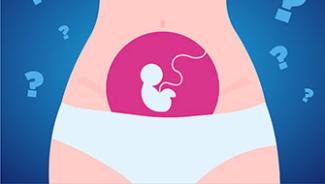
Think you might be pregnant?
Discover Clearblue Digital Ultra Early, our most sensitive digital pregnancy test that gives you digital results 6 days early.
Test sensitivity is 10mIU/ml. 78% of pregnant results can be detected 6 days before your missed period.

Get a pregnant result as fast as 1 minute from the day you miss your period
Clearblue Rapid Detection Pregnancy Test has been designed to offer you the easiest pregnancy testing experience, with the accuracy you expect from Clearblue – and a result as fast as 1 minute.
A pregnant result may appear in 1 minute when testing from the day of the missed period. Wait 3 minutes to confirm a not pregnant result.


